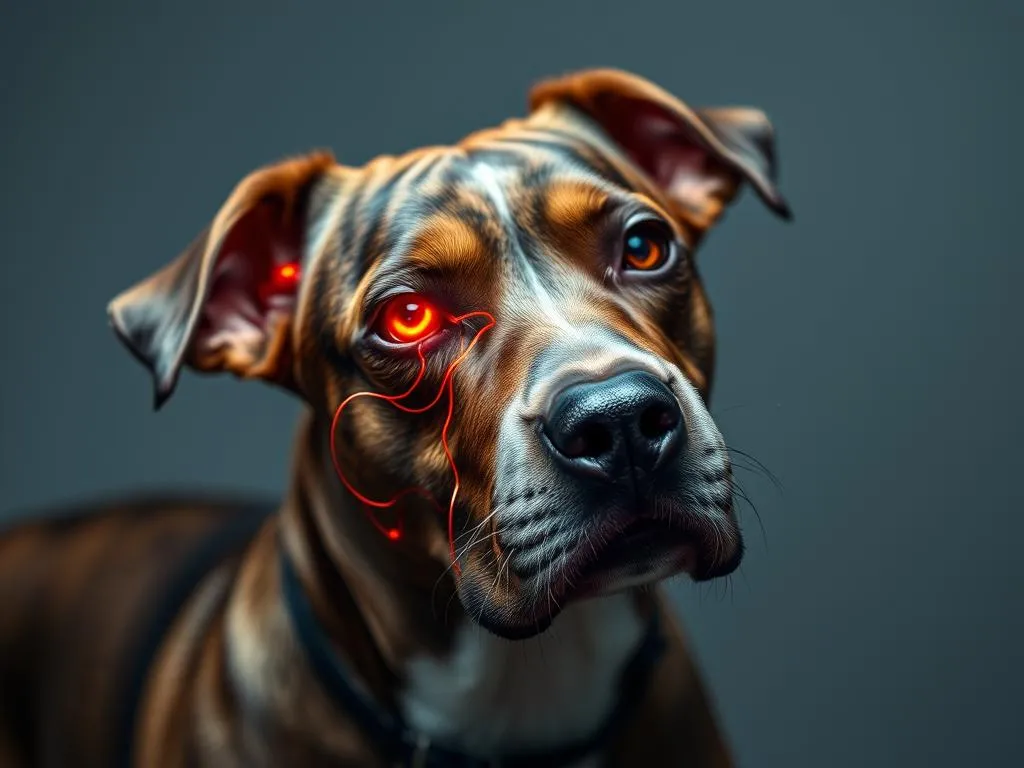
Introduction
Canine neurological health is a crucial aspect of pet care that often goes unnoticed until significant issues arise. Statistics indicate that neurological disorders affect a notable percentage of dogs, with conditions such as epilepsy and intervertebral disc disease being among the most common. Prompt recognition and intervention can make a significant difference in treatment outcomes and quality of life for our furry companions.
Understanding the neurological disorders in dogs can empower pet owners to take proactive steps in monitoring their pets’ health. This article seeks to provide valuable insights from veterinary professionals on the various neurological disorders, their symptoms, diagnosis, treatment options, and how to care for dogs affected by these conditions. Whether you are a dog owner, a potential adopter, or a veterinary student, this guide is tailored to enhance your understanding of canine neurological health.
Understanding Neurological Disorders in Dogs
Definition of Neurological Disorders
Neurological disorders refer to a wide range of conditions that affect the nervous system, which includes the brain, spinal cord, and nerves. The nervous system plays a vital role in controlling various bodily functions, including movement, sensation, and cognition. When something disrupts this system, it can lead to a variety of symptoms and challenges for the affected dog.
Types of Neurological Disorders
Several common types of neurological disorders in dogs warrant attention:
- Epilepsy: A chronic condition characterized by recurrent seizures.
- Degenerative Myelopathy: A progressive disease affecting the spinal cord, leading to mobility loss.
- Intervertebral Disc Disease (IVDD): A condition where the discs in the spine degenerate, causing pain and possible paralysis.
- Vestibular Disease: A disorder affecting balance, often presenting suddenly.
- Canine Cognitive Dysfunction (CCD): Similar to dementia in humans, it involves cognitive decline in older dogs.
Recognizing Symptoms
General Signs of Neurological Disorders
Being aware of the general signs of neurological disorders can help in early detection. Watch for these common symptoms:
- Seizures: Sudden episodes of uncontrolled electrical activity in the brain.
- Loss of Coordination: Difficulty walking, stumbling, or falling.
- Behavioral Changes: Altered responses to familiar people or environments.
- Weakness or Paralysis: Lethargy or inability to move certain body parts.
Specific Symptoms by Disorder
Each neurological disorder presents specific symptoms that can help in identification:
-
Epilepsy: Dogs may experience different types of seizures, such as tonic-clonic or absence seizures, often triggered by stress, excitement, or changes in routine.
-
Degenerative Myelopathy: Symptoms typically progress from weakness in the hind legs to complete loss of mobility, along with potential incontinence.
-
Intervertebral Disc Disease: Look for signs of back pain, reluctance to move, sudden yelping, or a hunched posture.
-
Vestibular Disease: Affected dogs may show signs of head tilt, circling, and loss of balance, which can be alarming for owners.
-
Canine Cognitive Dysfunction: Symptoms often include disorientation, altered sleep patterns, and changes in interaction with family members.
Diagnosis of Neurological Disorders
Veterinary Examination
A thorough veterinary examination is crucial for diagnosing neurological disorders. The vet will typically perform a comprehensive physical and neurological exam to assess the dog’s reflexes, coordination, and sensory functions.
Diagnostic Tools and Techniques
To pinpoint the exact condition, veterinarians may use various diagnostic tools, including:
- Blood Tests: To rule out metabolic issues or infections.
- MRI and CT Scans: Imaging techniques to visualize the brain and spinal cord.
- Spinal Taps: To analyze cerebrospinal fluid for abnormalities.
- Electromyography (EMG): To assess the electrical activity of muscles and nerves.
Treatment Options
Conventional Treatments
Conventional treatments vary depending on the disorder diagnosed. For instance:
-
Epilepsy: Anti-seizure medications such as phenobarbital or potassium bromide can help manage seizures.
-
Intervertebral Disc Disease: Pain management may involve anti-inflammatory medications, while severe cases might necessitate surgical intervention to relieve pressure on the spinal cord.
Alternative Treatments
Many pet owners explore alternative treatments that can complement conventional care. These may include:
-
Physical Therapy: Helps improve mobility and muscle strength.
-
Acupuncture: Can provide pain relief and improve overall well-being.
-
Dietary Supplements: Omega-3 fatty acids and antioxidants may support brain health and reduce inflammation.
While alternative treatments can be effective, it’s essential to consult with a veterinarian to determine the best approach for your dog’s specific needs.
Living with a Dog with a Neurological Disorder
Caregiver Responsibilities
Caring for a dog with a neurological disorder requires dedication and patience. Establishing a daily routine can help provide stability for your pet. Keep track of medication schedules, dietary needs, and any changes in behavior.
Supportive Environment
Creating a safe and supportive environment is crucial. This may involve:
-
Modifying the Home: Remove obstacles that could cause falls, such as loose rugs or clutter.
-
Stress Reduction Strategies: Maintain a calm atmosphere and provide a comfortable resting area.
Emotional Support for Owners
Caring for a dog with a neurological disorder can be emotionally taxing for owners. It’s important to manage your stress and seek support when needed. Consider joining pet support groups or talking to a counselor who understands the challenges of pet caregiving.
Prevention and Health Maintenance
Regular Veterinary Check-Ups
Routine veterinary check-ups play a vital role in maintaining your dog’s health. Regular screenings can help identify potential issues early, while vaccinations and parasite control are crucial for overall well-being.
Early Detection Practices
Monitoring your dog’s health is essential for early detection of neurological disorders. Maintain a health journal to track any changes in behavior, appetite, or mobility. This information can be invaluable during veterinary visits.
Healthy Lifestyle Recommendations
Promoting a healthy lifestyle is key to preventing neurological issues. Focus on:
-
Exercise: Regular physical activity tailored to your dog’s abilities helps maintain a healthy weight and supports overall health.
-
Nutrition: High-quality dog food that meets nutritional needs is fundamental. Consult your vet for dietary recommendations based on your dog’s condition.
-
Mental Stimulation: Engaging your dog in puzzle toys, training sessions, and interactive play can help keep their mind sharp.
FAQs about Neurological Disorders in Dogs
Common Misconceptions
There are several myths surrounding neurological disorders in dogs that need addressing:
-
Myth: All seizures mean a dog has epilepsy.
Fact: Seizures can have various causes, including toxins, infections, or metabolic conditions. -
Myth: Neurological disorders only affect older dogs.
Fact: While some conditions are more common in senior dogs, neurological disorders can occur at any age.
Vet Answers to Common Questions
-
How often should I see a vet?
Regular check-ups at least once a year are recommended, or more frequently if your dog shows symptoms of neurological issues. -
What should I do if I suspect my dog has a neurological disorder?
Contact your veterinarian promptly to discuss your concerns and schedule an examination. -
Can neurological disorders be hereditary?
Yes, certain disorders such as degenerative myelopathy have genetic components and can be passed down.
Conclusion
Understanding neurological disorders in dogs is vital for every dog owner. Recognizing the symptoms early, seeking professional help, and providing the necessary care can significantly improve your dog’s quality of life. By staying informed and proactive, you can help ensure that your furry friend remains happy and healthy. Remember, if you have any concerns about your dog’s neurological health, don’t hesitate to consult your veterinarian for personalized advice.









